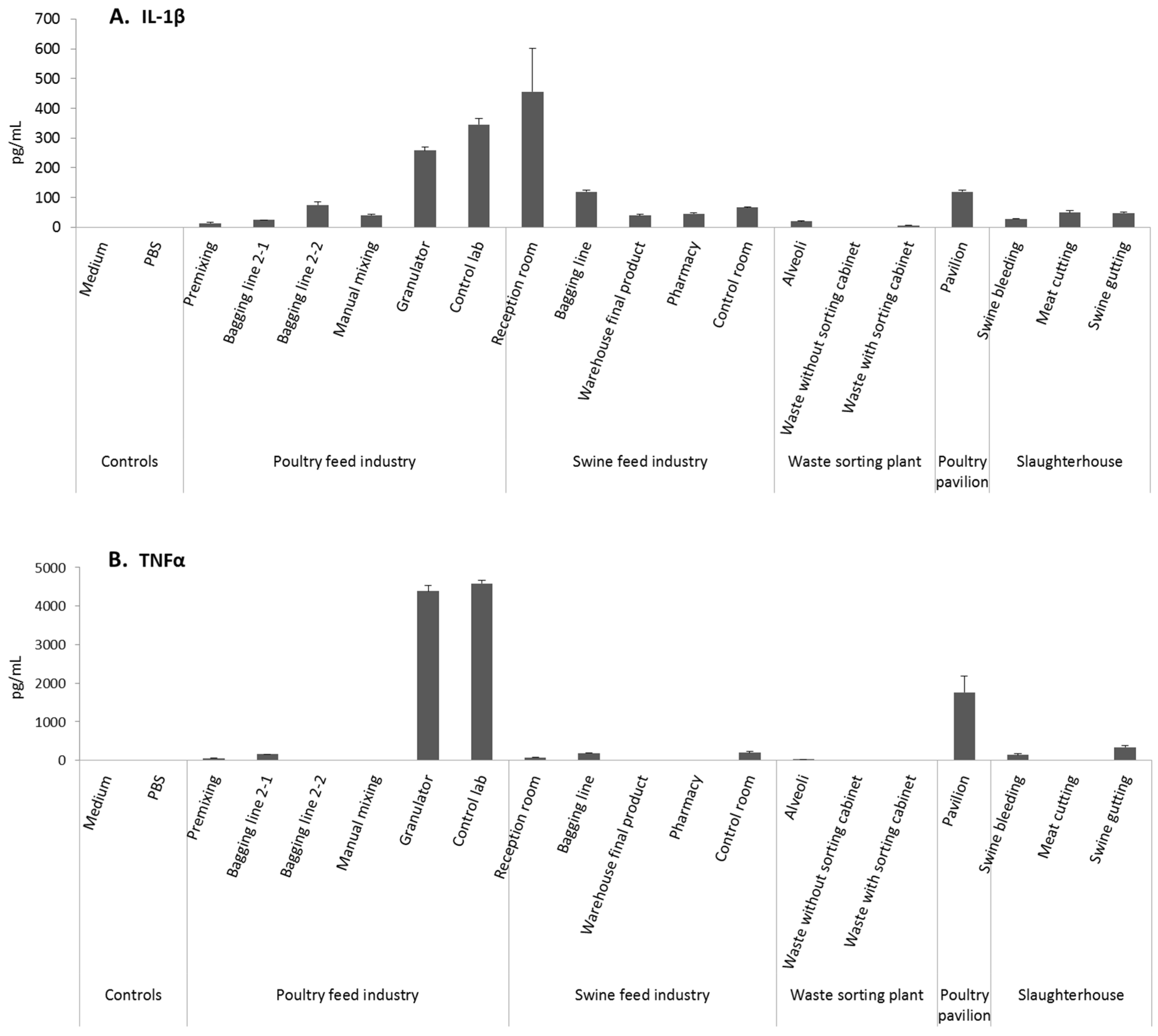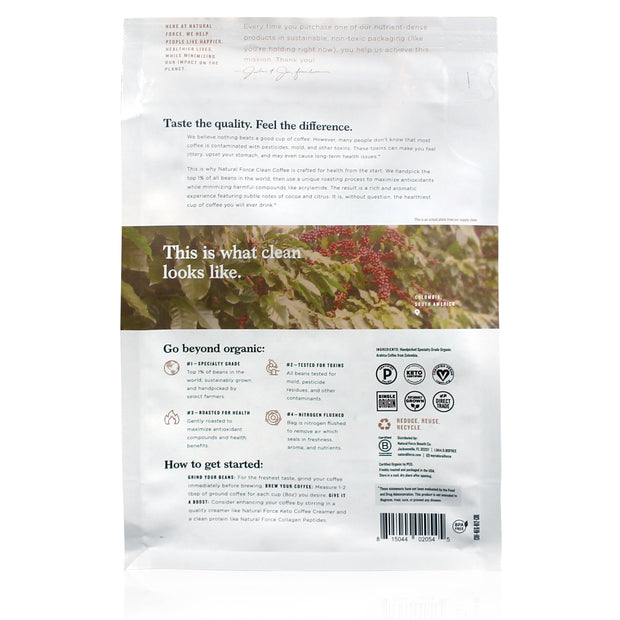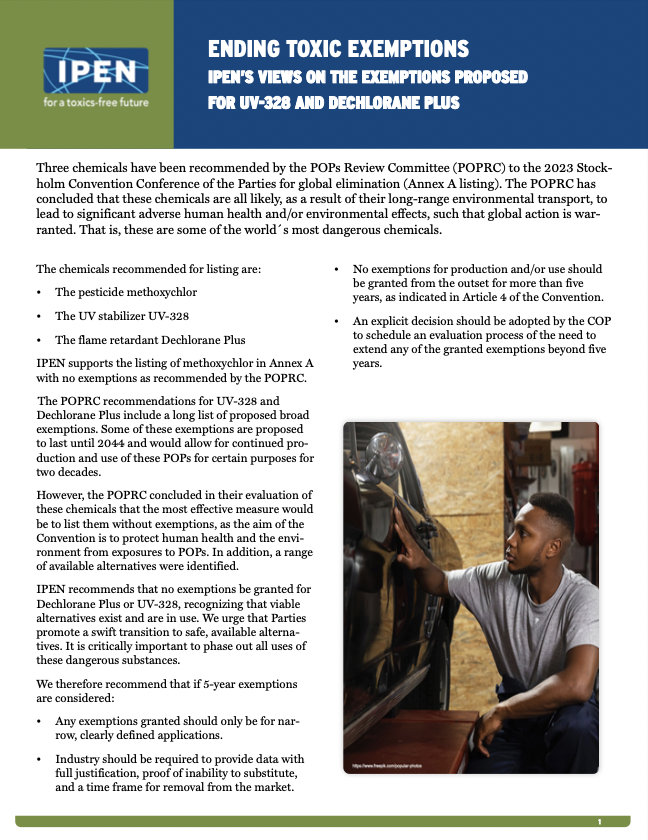Toxics, Free Full-Text
$ 20.50 · 4.7 (321) · In stock

Organic dust and related microbial exposures are the main inducers of several respiratory symptoms. Occupational exposure to organic dust is very common and has been reported in diverse settings. In vitro tests using relevant cell cultures can be very useful for characterizing the toxicity of complex mixtures present in the air of occupational environments such as organic dust. In this study, the cell viability and the inflammatory response, as measured by the production of pro-inflammatory cytokines tumor necrosis factor-α (TNFα) and interleukin-1 β (IL-1β), were determined in human macrophages derived from THP-1 monocytic cells. These cells were exposed to air samples from five occupational settings known to possess high levels of contamination of organic dust: poultry and swine feed industries, waste sorting, poultry production and slaughterhouses. Additionally, fungi and particle contamination of those settings was studied to better characterize the organic dust composition. All air samples collected from the assessed workplaces caused both cytotoxic and pro-inflammatory effects. The highest responses were observed in the feed industry, particularly in swine feed production. This study emphasizes the importance of measuring the organic dust/mixture effects in occupational settings and suggests that differences in the organic dust content may result in differences in health effects for exposed workers.

Natural Force Clean Coffee *Toxin Free* from Organic Whole Beans

DIY Toxic-Free Foaming Hand Soap - Simply Reeni

Free Vector Toxic text effect editable poison and dangerous

Toxics, Free Full-Text

Philip Morris develops zero-tobacco heat stick that may avoid regulations, iquos

Resources for BRS COP 2023
Toxic Free New Zealand

Toxics, Free Full-Text

Toxics, Free Full-Text

Toxics, Free Full-Text

Toxics, Free Full-Text
